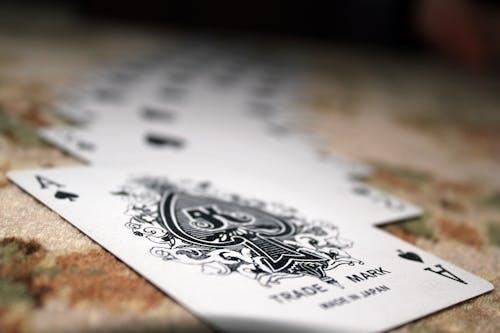Poker is less about cards and chips and more about a sport and a society. It is skillful and tactical, and as far as people would wish, it is controversial, a little bit of luck included.
However, for a player to stand out in their game, they need to develop a good attitude. Mental strength may make you the difference between a champion and a loser. The next area to investigate is the psychological aspects of playing and ways to overcome them.
The Psychological Challenges
Every poker player faces challenges at the table, ranging from emotional disturbance to decision exhaustion. A bad beat can frustrate a player at a casino, while successful gameplay can cause a player to get swept away. Emotional regulation is, therefore, crucial to succeed at poker games.
Playing poker is also characterized by pressure and stress; as expected, playing in a high-stakes environment can be challenging. But playing online poker at home can enable you compose yourself better hence play the game better.
Isolation is also another key challenge many players face. Poker can be quite a solitary game whether a person plays in their own home or at a casino. Being lonely can be a serious detriment, as negative feelings are enhanced. Relating with other players or mentors will help one get emotional support if they are down.
Overcoming Mental Hurdles
How can players cope with these challenges once they are pointed out? Here are some effective strategies:
Embrace Online Comfort: Playing at home means you can choose the venue and pause during the gaming process. This freedom helps one remain calm and pay attention.
Deep Breathing Techniques: When under stress or faced with delicate issues, deep breathing can calm nerves. Slow and deep breathing can help you regain your focus and let go of stress.
Visualization: Any time you are about to play a game, close your eyes and picture yourself unleashing your creativity, excelling and overcoming challenges. Visualization of success prepares you mentally, which, in turn, enhances the performance of the actual event.
Positive Self-Talk: Discharge negative thought patterns with affirmative ones. Self-affirmation may help smooth out the highs and lows of poker – a game in which both are extremely common.
Set Realistic Goals: Accept that there will be occasions when one will be on the receiving end. Therefore, they should adopt correct, realistic goals and avoid distractions.
Stay Resilient: Understand that having highs and lows in poker is delicate. Instead of concentrating on the failure aspect, consider each encounter an opportunity to learn from it.
The Casino Experience
Playing in a casino is electric. However, under such circumstances, players tend to be under particular pressure. Naturally, these feelings need to be controlled, and, in this case, one should pay more attention to the gaming process rather than the results. Focusing on your game plan helps reduce stress levels.
Time flies when you are in a casino. It is imperative to set a specific limit for the amount of time you spend playing. Frequently going for breaks helps you clear your head and get your energy back. This practice prevents burnout and keeps the mental state refreshed.
However, poker is both a card game and a mental game. You have to understand your opponents at the casino. It often gives one a significant advantage because you can predict how they will act next. This mental awareness can help you improve your game overall.
Mental Strategies for Success
Unleashing mental approaches into gameplay is one way of enhancing your overall performance in poker games. Here are some of the strategies to implement:
Resilience: Poker consists of distinct rises and falls. Cultivating resilience implies understanding that losses are inevitable during the game. Such a mindset helps protect you emotionally when you experience bad beats.
Adaptability: Be flexible in your approach. Modify your strategy to match the game’s flow. This will make you competitive and help you make better decisions.
Mindfulness: Thinking positively during gameplay can help you succeed. Being mindful of the ups and downs of the games helps keep your focus in check.
Resources for Improvement
Fortunately, many helpful resources, including responsible gaming guides, are available for players seeking ways to improve their mental strength during poker gaming. You can find informative printed material, such as books and articles, discussing various poker gaming mental strategies posted online.
Several poker gaming operators also have groups where you can join and connect with other poker players. Discussing poker gaming with others might enable you to learn from their experiences and even share your own. This leads to developing a positive mindset that can go a long way in boosting your understanding of the mental game of poker.
Conclusion
Success in poker heavily depends on mastering the game’s mental side. Skilled players understand that to emerge at the top of any poker game; they must overcome various psychological challenges, whether seen or unforeseen.
Pressure, stress, and isolation are mental challenges that characterize poker gaming. Overcoming them requires a player to be resilient, adaptable, and mindful. A strong mental state will give you an edge over opponents when playing poker.











